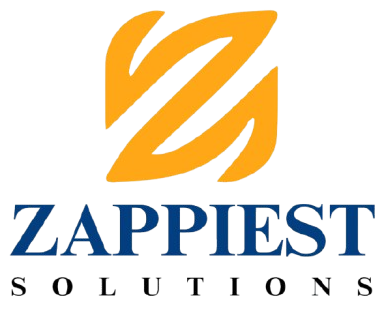
Search Engine Opt (SEO) stays a top skill in net ads. At its heart, SEO is about ways to make sites show up more, rank high, & get more web hits. But SEO has moved past just looking up key words & getting links. In 2025 & on, SEO means mixing new thought, plans, & tech skills to keep brands seen in smart web search tools. AI has changed the game, but a strong grip on the core tasks is key to help bring good end work for a long time. But net ads pros who want to focus on SEO need to know it all: They have to be good at searching key words & link work to doing tech checks & AI-based make-betters. They must have both hard & soft skills.
Let’s look at the key SEO skills, top tech skills, & new skills you’ll want to have. This will help you do well in the fast search world. In this blog, you will find:
- What key SEO skills must all marketers have?
- What key tech SEO skills are a must for job rise?
- What SEO soft skills should salespeople have?
- What new SEO skills will come?
- How can you grow your top SEO skills?
- Frequently asked questions about SEO knowledge.
What key SEO skills must each ad man have?
SEO makes your site easy for search tools to find & know. They then place it high. It needs a mix of skills to do it right.
Here are the key skills for site search fix:
1. Smart plans
SEO is more than just tasks or doing to-dos. It links text with biz aims. Smart ideas let you pick where to put in work: key words with high worth, easy wins, or texts that build trust. It lets you aim for evenness in your site. You must choose top pages, which pages to tune, & the lay of your whole site. You don’t want your likely buyers to click on ten links to find their page, do you? You should start by knowing your SMART aims – this will gear you up for smart wins.
2. Competitive research
Do your rivals get the top spots on the search page? They might even get a nod from Google’s AI or tools like ChatGPT. A deep look at what they do can show why they stand out online. Know what your foes rank for & where their links are from. This can show you where you can do more. Tools like Ahrefs & Semrush can help. Also, SparkToro can tell you where folks hang out online & how they use AI. This could let you see chances to get ahead. A good plan needs a look at what the others do right.
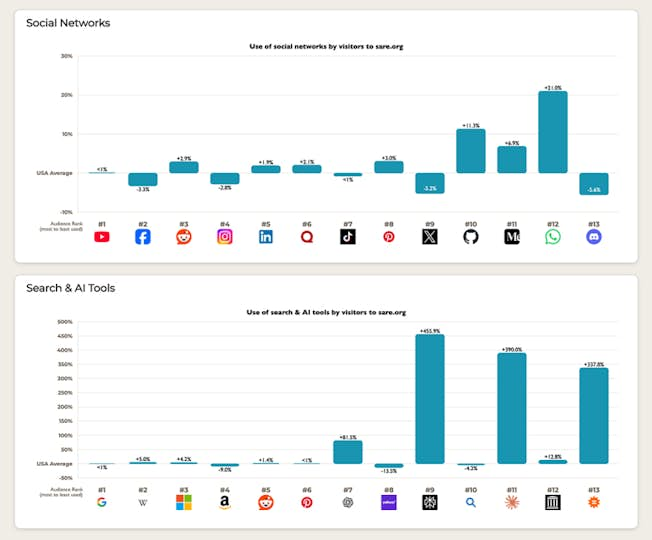
Once you know your foes well, it’s time to use the same tricks on your site. In SEO, being first helps a lot, but you won’t fall too far back as long as you do it best.
3. Keyword research
SEO still rests on key word work. This means to look for full noun-based terms, long quests, & hot “people say” stuff. With good key word find work, you can get cool suggestions for what your viewers may want to see or know on your web space. It helps you beat your foes, too. When you do key word work, know how to place words well on your site. For short key terms, think of using them on your item pages. Long terms that teach or need big talks fit well in your blog or help zone. To aid you, lots of tools are there to pick from. Some free tools are: Google Trends, Google Key Word Tool, & AlsoAsked. You can find tools with free, but low reach like Ahrefs, Moz, & UberSuggest.
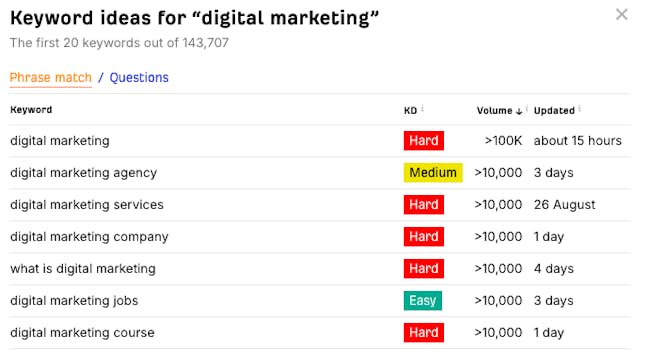
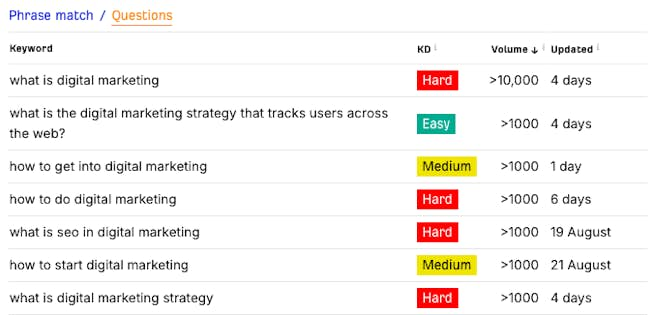
4. Content creation
Top stuff is the key to SEO. From blog posts & sites to case files & white papers, all you write must work for folks & codes.
Writing, editing & storytelling
Text that tells, sways, & bonds with your crowd does well. Good SEO writing mixes fun with facts. It aims for top terms but keeps it easy to read. The aim is to meet user needs in a style that is both fun & true – more so if you aim to show in genAI finds. The set-up & rank of your text is key as it lets both search bots & AI bots get & use your text with ease. This takes in on-page set parts, like lists, FAQ parts, & more.
On-page optimization
Page parts like titles, alt text, & links help search sites. They let them read & know what’s on your site. A good title & meta can pull in clicks. To write eye-catching titles, you need to learn & try a lot. Even small stuff, like URL setup, shifts how well the page does. Think you run a cyber safe firm & want to post a blog on “Top Cyber Threats for Firms.” You might not want a URL like /top-cyber-threats-for-firms-2025/. Drop the year so you can update it each year. This keeps the URL fresh & the stuff on point, post-2025.
5. Multimedia skills
SEO now is not just words – folks must grow. The skill to make pics, charts, clips, audio shows, & live talks ups how much folks like, share, & see your stuff on many sites. Web tools like this if users stay longer, & such media makes your pages pop & easy to find. If you have old but good stuff, make it new by changing its form. For example, turn a live talk into short clips which you can post on your social sites.
Pro tip: A top pick for new users is Canva. Here, you can add your brand bits & make all sorts of stuff you can think of.
6. Optimization and analytics
SEO is not “set & forget.” Rules change & so should your posts. Blog posts must get new facts. Old pages may need to blend or end. This is where fine-tuning & stats help. Top pros in the field can tell which pages need work by checking stats tools. You should look at tools like: Google Stats & Google Search Help.
7. Trend spotting
SEO & key data use old facts & charts. Even key tools use last month’s data. But, most won’t show which keys will be hot soon. Some tools, like Google Trends & Exploding Topics, let you see what keys might in soon.
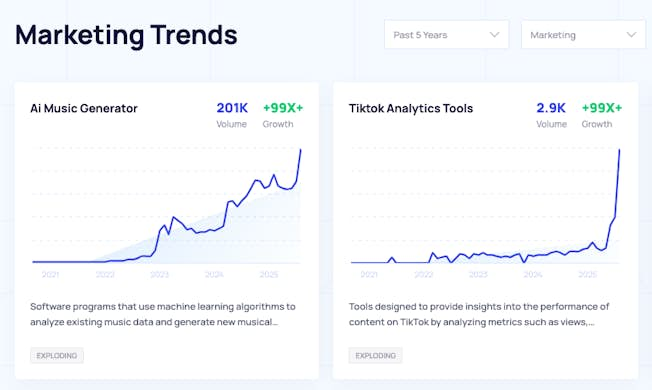
One way to spot trends is to use social media. Look for what’s new. Read news or write-ups tied to your work. They show you what your fans & may-be buyers want to see on your site. Write on these hot topics. Rank top & for sure, your rep will grow.
What are the advanced technical SEO skills needed for career growth?
Output
Words may draw folk, but bad tech can hold it back. Good tech SEO makes sure your words are found, read, fast, & nice to use. These are key hints that search tools use to set ranks. Big skills help you go up in your job.
1. Software mastery
All SEO pros need to use core tools like Google Analytics 4 (GA4). It lets them see the traffic, who stays & who goes, & how folks go through the site. They need the Google Search Console (GSC) too. It helps check indexing, fix crawl issues, & see what queries bring views & clicks. Tools like Screaming Frog & Sitebulb are also key. They are used to check the site for tech flaws, find bad links, same content, or slow pages. Also, being able to get to CMS stuff for the site or content you work on is a big plus. Being good with these tools lets you find & fix tech issues fast. That way, they don’t mess up your rank.
2. Website auditing
A full site check is like a health test for your site. It shows things that you can’t see but hurt how well the site ranks. Key parts to check are:
- Crawl faults – Pages that search tools can’t find or list.
- Same words on more pages. They fight to win in search ranks.
- Bad links – hurt how users like a site & waste link worth.
- Redirect chains – Slow page speed and indexing confusion.
The true craft is not just to spot these flaws but to rank & fix them. You must learn which ones will make a big change: Do you mend a bad sitemap first or rid of twin title tags? If you have the way in to fix tech faults like these, you’re half there. Yet, oft, folks in marketing may halt here & need the web team to jump in. If you’re a marketer with deep access – great to dive in!
3. Basic coding skills
You don’t have to be a tech pro. But, knowing a bit of HTML, CSS, & a touch of JavaScript helps a lot. Know how code sets up a web page. It aids you to fix big bugs. Like bad tags & wrong head lines. Being able to talk like devs aids in team work. It makes sure SEO tips are used right.
Pro tip: You can start to learn by asking the team’s devs for help. Set up check-ins to talk about any work stops or bugs.
4. User experience (UX) understanding
What good is a site if it is not nice to use? Web search tools like easy-to-use sites. That is why Core Web Vitals (speed, quick replies, & steady look) are key. Your site must work well on small screens too. UX tech SEO looks at fast load times, works well on phones, easy to move & links with in. Site use for all is a must. You may think you just need more site visits. But how can that be if you lock out many users?
Make sure your site is easy to use. This lets those with needs use your site. In the end, they will feel part of it all. Site help may come in many ways. Like use of clear colors, adding words to videos, & short tags for pictures, & more.
5. Link building
Link build in SEO is the act of getting good backlinks. These show trust & power to search sites. Is link build still key in the AI age? Yes. But now, we care more for fit, trust, & use. A link from a top field paper or school means more than lots of bad links.
Pro tip: If you want to make links for SEO, start by making top-notch stuff that folks like to link to.
What SEO soft skills do marketers need?
Hard skills help, but soft skills make top SEOs stand out.
1. Flexibility & adaptability
SEO shifts quick. You must act quick. You must make key changes to your site to keep up. This is why it’s key to keep learning & get better skills.
2. Collaboration
Dealing with words, looks, goods, & PR folks is key. If you work on a site for a firm that handles tough terms, web sellers should learn to team up with smart pros who might work in a new spot. For a site that has hard health terms, an SEO pen may need to talk to health pros or docs.
3. Time management
Put high return (ROI) work first. But, have a plan or list of stuff to do. For example, to check a whole site means to look at each bad link after you crawl the site. If the site wasn’t checked for many years, it means more links to check! This takes lots of time, so you must plan your time & pick what to do first.
4. Emotional intelligence & empathy
Emotions help you make stuff that hits home with real folks, not just code. And feeling for those left out is key in putting web ease first.
What will SEO skills be soon?
The SEO world has changed a lot. AI sites like ChatGPT, Google Gemini, & Perplexity AI shift how we find & use info. Voice aids such as Siri, Alexa, & Google Asst are more popular now. To stay in the race, web pros must learn new SEO skills that fit these changes.
Brand & expertise
Web search & AI hold trust high. Don’t skip E-E-A-T rules (Know, Skill, Clout, & Trust). Grow brand pull by lots of pro-led posts. Set your brand as a top mind. Doing this will up the odds to pop up in AI-made replies.
Structured data & schema markup
AI search tools & voice aids need clear data to give good results. To use schema markup aids search tools get your content right. Not just in base lists, this boosts your spot in top clips, voice replies, & AI short texts.
Using AI for SEO
AI is not just for search. It helps folks in marketing & SEO too. Skills like prompt crafting aid you to get greater results from AI gear. AI-based sites can quicken things up. They help in key word search, foe check, content plan, & show reports. The ChatGPT Prompt Guide sets you up to win. It helps when you use Gen AI for SEO aims.
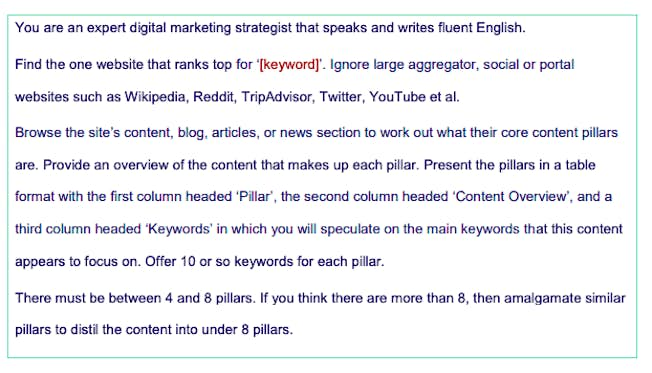
It is clear we still need much help from man at each part of the work. We must check all the facts from these AI tools. And do not skip out on using AI in a good way.
Privacy-first SEO
Third-party cookies go away. Laws like GDPR & CCPA shift. So, marketers must care more for good data use. They should use first-party data right & still give custom help. This is now key for SEO. It helps your brand stay by the rules. It also makes users trust you more.
Voice SEO
Statista says, 8.4 billion voice aids were in use in 2024. In the US alone, up to 162.7 billion folks may use voice help. Voice search is here. Gone are short terms. Now, users ask full & long things. For ex: “What’s the top coffee spot near me that’s open now?”
You must know how to set up your stuff for voice search now. Think on these: use real talk in your text. Add “near me” asks & local aims. Also, use FAQ forms that give clear replies.
How can you build your SEO master skills?
If you aim to be tops at SEO, you must keep up & learn all the time. SEO is not a skill you get just once. Like most parts in web ads, it keeps changing. Search sites, rules, & how folk act shift non-stop. So, the top SEO folk never stop learning.
The Digital Marketing Institute’s Search Marketing Course helps you get real skills. You learn all from keyword search to on-page boosting, from tech SEO to data checks. It’s made to help you not just keep up with the market shifts, but to stay in front of them.
Beyond coursework, you should consume other types of content, like webinars, podcasts, eBooks, forums, and more. Consuming expert-led resources ensures you’re not just keeping pace with the industry, but leading the way. Follow experts in the search industry to keep informed on the latest, and sign up to newsletters that come straight to your email inbox.
Networking is also a powerful learning tool. Engaging with SEO professionals through LinkedIn groups, online forums, Slack communities, or industry conferences gives you access to real-world case studies and new opportunities. Sometimes, the fastest way to learn is by sharing challenges and solutions with peers who are facing the same SEO roadblocks.
FAQs on SEO skills
Is SEO very difficult?
It can be hard & may feel too much. But with good teaching & lots of tries, all can learn. Start with the easy stuff. When you know that, go on to the hard & top skills.
Can I learn SEO by myself?
Yes, you can. Many pros learn SEO by themselves. They use free tools & good practice. But real course work speeds up your job path. In a tough job set, lots have a want for those with a top school tag.
How to list SEO as a skill?
On your resume or LinkedIn, list in groups: “Keyword Search, Tech SEO, Content Fix, Data Check, Link Make.” Show these skills by talking about your past work, how you used them, & clear results.
What is the salary of someone who works with technical SEO?
In 2025, pay for tech SEO folk rests on where they live & how long they have worked. You can look at our no-cost Pay Guide. See how much web ad pros make per place.
What is the difference between technical SEO and SEO?
Technical SEO focuses on the site’s infrastructure (speed, schema, mobile optimization, crawlability), while SEO broadly covers everything, including content and strategy.
Use SEO to drive traffic and generate quality leads
SEO can boost your content. It helps more folks see your firm. They will be those who need your good or help. But you must know how to use it well to win. Our short SEO class covers the keys. It talks about search ads, how to make your site work better, fine-tuning on-page & text, working on off-page & area SEO, & plan & check scores. Sign up now to start!
